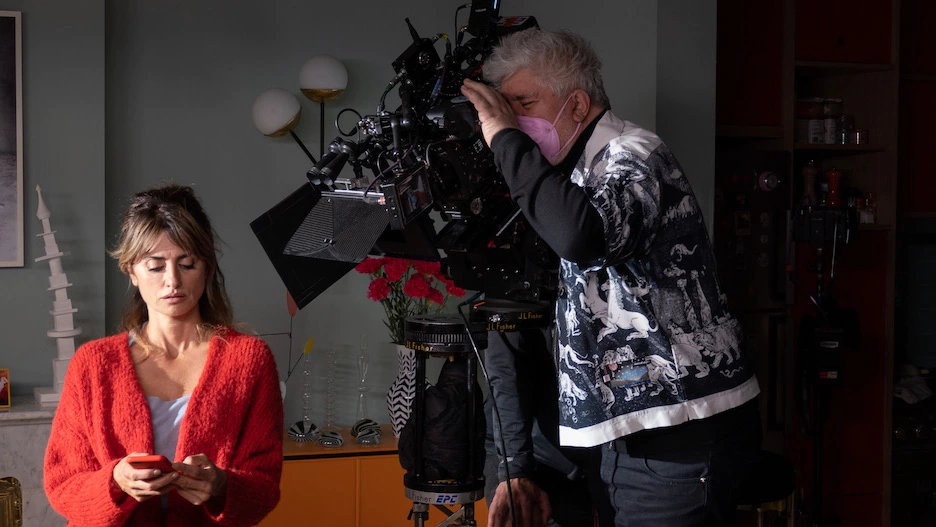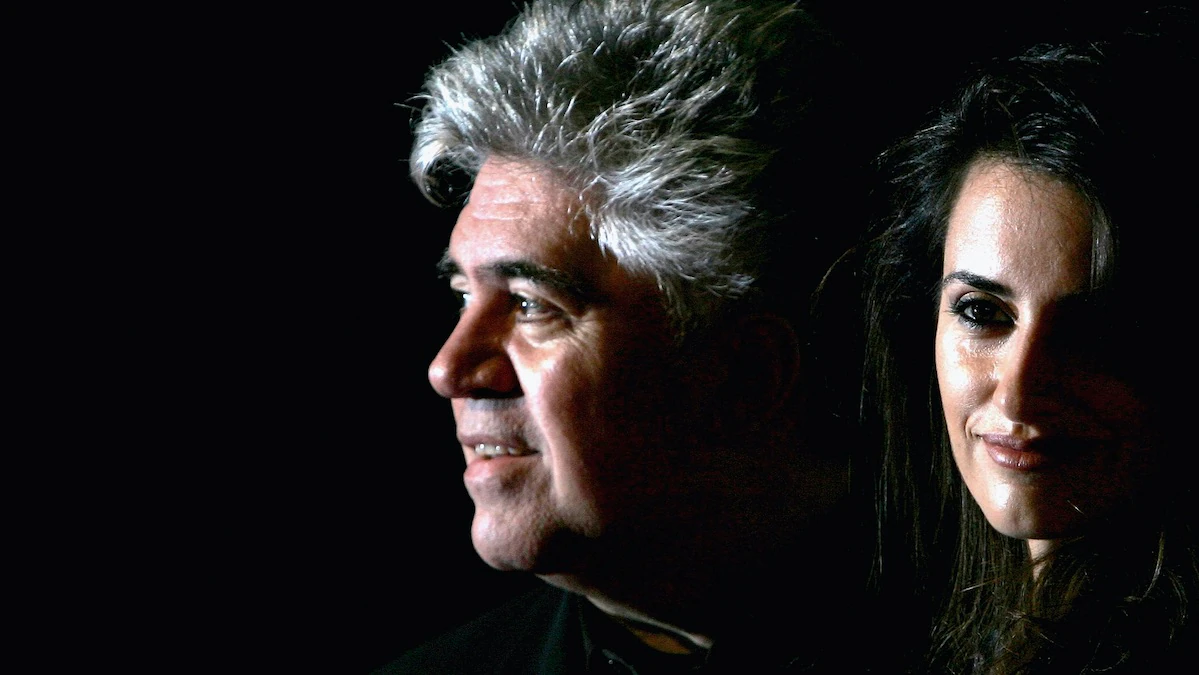This story about Pedro Almodóvar and Penélope Cruz first appeared in the Awards Preview Issue of ’s awards magazine.
When he started making movies in Spain in the 1980s, Pedro Almodóvar had a problem: The mothers he saw in Spanish movies just weren’t sexy enough. “There was no tradition of showing attractive housewives,”He said. “The housewives and mothers, they had nothing to do with sex. But I wanted to imitate the Italian way — I was thinking of Sophia Loren and Anna Magnani because they were gorgeous, they were desirable and they were mothers, too.”
And Almodóvar also had a solution to this problem of dowdy mothers: Penélope Cruz. “When Penélope arrived in the Spanish cinema, let’s just say that housewives and mothers became much more attractive,”He smiled.
And Penélope was ready for Pedro, and ready to be a new kind of Spanish mother. She made her debut in an Almodóvar film in 1997 at the age of 23, when she played a prostitute who gives birth on a bus in “Live Flesh.” “I played so many mothers for him,” said Cruz, who didn’t give birth herself until 2010. “Except for ‘Broken Embraces,’ every single time I was a mother or pregnant.”

Those other films were 1999’s “All About My Mother,” 2006’s “Volver,” 2013’s “I’m So Excited,” 2019’s “Pain and Glory”And the new “Parallel Mothers,”This won her the Best-Actress Award at the Venice Film Festival 2021.
“I saw her in her first movie, ‘Jamón Jamón,’ and I remember thinking, ‘This is the type of girl I would like to work with,’” Almodóvar said. “She is a good comedian, but she is also very deep in pain and drama, and very authentic. She breathed truth, and she also adapted very well to the way that I used to work.”
And Cruz, who’d become a fan of the director’s movies watching them on her parents’ Betamax machine, embraced the collaboration as well. “Every single thing that I have done with him has opened new doors and opportunities,”She said. “He has always given me new material that had nothing to do with anything that I had done before. He can imagine me doing things before he’s seen me do them, and I feel very grateful for that.”

With “Parallel Mothers,” the new territory for Cruz included the shades of guilt that her character carries, as well as a backstory that finds Almodóvar venturing into the political arena. Cruz portrays Janis, a successful photographer, who meets Ana, a younger woman in the maternity unit just before she gives birth to their daughters. Janis discovers that Ana accidentally switched the babies by the hospital and hides it from Ana until the story turns dark.
“Her moral dilemma was really interesting to play,” Cruz said. “She’s becoming an incredible liar in her own house, and to play somebody that had to become a great liar for her survival gave me crazy adrenaline. But I enjoyed every second of it.”

While Almodóvar typically takes his actors through a lengthy rehearsal process, “Parallel Mothers”The longest was ever. “We had four or five months,” Cruz said. “When I work with Pedro, I don’t prepare by myself or with my acting teacher. He knows the entire process, so I am completely prepared and I start from zero.
“And in this case, it was crucial, because Milena (Smit, who plays Ana) and I would start crying every time we read a scene for the first three months. And Pedro was like, ‘It’s OK, girls — you can cry all you want now, but those are your tears and I’m not interested in them. We need to get to your characters’ tears.’”
“Penélope is very visceral,” Almodóvar said. “She needs to feel what she’s doing. But because she’s so emotional, every time she read the script she would be overcome and would start crying. At first, I let her cry all she wanted, but then I dedicated myself to draining her of her tears, until the very end. And cinematically speaking, it’s much more interesting to the cameras when a character is trying to withhold tears than when they’re crying.”
The political side of “Parallel Mothers,”The film serves as a sort of bookend. At the beginning of the film, Janis asks a forensic anthropologist about exhuming a mass grave where her grandfather was likely buried after being killed by Franco’s forces in the early years of the Spanish Civil War; by the end, that intermittent storyline about a nation reluctantly coming to terms with its bloody past reaches a powerful conclusion that is the most explicitly political moment in any Almodóvar film.
“I wanted to include that subject in one of my scripts, but I didn’t get the right script,”He said. “In ‘Live Flesh,’ the movie started with the birth of the protagonist, which occurs before the death of Franco, when the minister of the interior suspended all civil liberties. It starts on a dark night, and then 20 years later his own son is born in a democracy, with people in the streets of a different Madrid. But that was as political as I could get until I found this story.”

Almodóvar is aware that his own movies played a key role in Spain’s slow cultural transformation after the 1975 death of Franco, but he denies setting out to show a message of freedom. “I was trying to be faithful to the way I see the world,”He said. “My life had changed a lot with the arrival of democracy, and the lives of the people around me in Madrid had changed. This is why I became interested in sharing stories about the change.
“Yes, I did realize that the kinds of stories I told had not been told before with this kind of freedom, and that the way my movies played with gender and sexuality was varied and open in a way that had not been done before. But I wasn’t doing it in the spirit of being an activist, and I wasn’t so pretentious as to think I was going to change Spain. I was just trying to describe as accurately as I could what was around me.”
And for the rest of his career, the director figures that he’ll continue to turn to Cruz to play mothers (and others). “She says she wants to be in all my films,”He laughed. “Of course I would like Penélope to be in all my films, but I haven’t written all my films yet and I’m not sure she will have a place in all of them. But she is part of my artistic family and my personal emotional family, and I think of her as being part of my old-school-style theatrical troupe.”
Cruz, however, is more direct about the collaboration. “To me, if I could be in a hundred of his movies, it would not be enough,”She said. “It’s always a great adventure when I’m on the set with him, and I feel the same way when I go to dinner with him. We’re in each other’s lives forever.”
You can read more in the Awards Preview issue.



